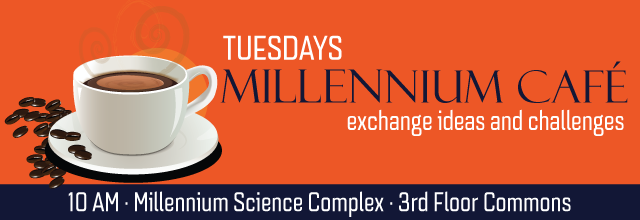
I will highlight recent advances in our group in the engineering of functional, topographically-, and chemically-patterned polymer coatings via light-mediated surface-initiated polymerization. Oxygen tolerance, mild reaction conditions, and the use of visible light make this approach user-friendly in its application for the design of e.g., anti-microbial surfaces, anti-fogging coatings, and organic light emitting diodes (OLEDs).
Presenter: Christian Pester | Chemical Engineering
